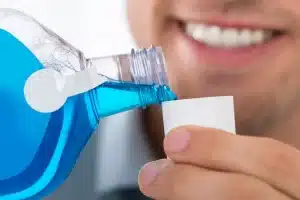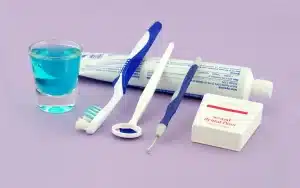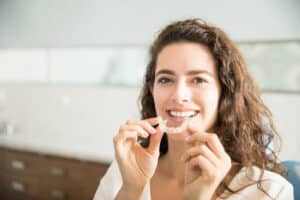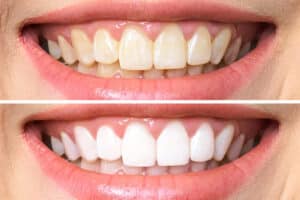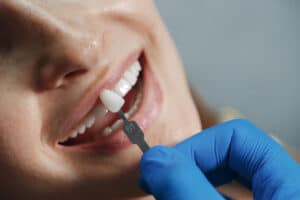You want to prevent dental problems, what about using a mouthwash? Are they any good?
Does it ‘blast away dental problems, kill germs and fights bad breath’ like the adverts claim? If you just swish with mouthwash, all your dental problems just disappear.
Sigh.. if only if it was like that.
If only what they say in the ads was true and preventing dental problems was that easy.
It can be very overwhelming when you are shopping for dental hygiene care products, they say they have all these features such as ‘fresh breath’, ‘decay fighting’ and ‘deep clean’, or best of all an ‘explosion in your mouth’.
Are mouthwashes any good and are they going to help you?
Most dental problems – cavities, gum disease and bad breath are caused by plaque. Plaque is a sticky, colourless film that attaches to the different parts of your mouth. Plaque builds up on your teeth after eating and it contains millions of bacteria. It’s this bacteria that causes dental problems.
There are 3 main dental problems you can develop and want to avoid
1 )Cavities (= holes in the teeth) bacteria in plaque on the teeth uses the sugars in the food you eat to produce acids, these acids eat away at tooth enamel causing cavities.
2) Gum disease – Bacteria containing plaque builds up along the gum line, causing irritation and infection in the gum. Over time this makes the gums red, puffy and they bleed much easier. Untreated it can lead to gum disease; this is where the gum and the bone is eaten away and destroyed from around the teeth and possible tooth loss.
3) Bad breath – When plaque bacteria isn’t cleaned off properly after brushing, particularly at the back of the tongue, a type of sulphur producing bacteria overgrows, producing the bad smell.
So plaque = dental problems. If you can get rid of plaque it reduces your dental problems.
Question: So how do you get rid of plaque? Answer: It’s not that easy.
Plaque is very sticky and gets stuck to the teeth and gums and can’t be washed off even with a mouthwash.
You need get in there and physically remove it – with a toothbrush, floss and a tongue cleaner.
So because mouthwashes won’t remove plaque, they won’t prevent cavities, gum disease or bad breath, no matter what their ads say they will do.
It’s like trying to remove a lipstick mark from a coffee cup.. you can’t wash it off, you need to get in there and rub it with something; no amount of washing is going to get it off. It is the same with plaque, you have to physically remove it.
So if they are of no benefit to you, is there any harm in using them anyway because they do make your mouth feel clean?
Well, yes there is a few problems with using them and it relates to what their ingredients are:
1) Alcohol
Some mouthwashes (you know the ones that advertise all the time, those ones) contain alcohol, some have up to 26% alcohol, that is a lot higher alcohol concentration than in the spirits you drink. The burning ‘clean’ sensation you feel when rinsing with these is due to the alcohol, that burning feeling is the skin in your mouth being irritated and stripped away. The skin in your mouth is very thin and fragile; rinsing with up to 26% alcohol for the 2 minutes that these mouthwashes recommend, is very irritating on the skin in your mouth. It has been shown that these mouthwashes, due to this irritating affect, can INCREASE your risk of mouth cancer.
It gets better… alcohol (in mouthwashes) dries out your mouth, this actually exacerbates bad breath, as it affects the saliva composition, making it easier for the smelly bacteria to overgrow, meaning your bad breath gets worse.
2) Chlorhexidine
As an added bonus if the mouthwash contains a chemical called chlorhexidine gluconate (and a lot of the most popular do), then using a mouthwash containing this chemical can:
- increase the amount of tartar/ calculus (you know that hard stuff the dentist cleans off your teeth) in your mouth (who wants that);
- inactivates the fluoride in toothpaste – so if you use a mouthwash after brushing which is usually what happens, the fluoride becomes ineffective, fluoride protects against decay you want it to be effective;
- cause staining of the teeth – brown patches!;
- it can alter taste sensations and affect your ability to taste things and for some reason it seems to be something a lot of people seem to develop severe allergies to (similar to nuts).
Not all mouthwashes are bad for you, there are a couple that we may at times recommend to you. Such as one that contains fluoride (with no alcohol), this is of benefit to people that are at high risk of dental decay. Also we still recommend warm salty mouth rinses after dental surgery, as it does have some antibacterial properties and increases blood flow to the area, which assists healing.
You are washing $ down the drain.
To sum things up mouthwashes aren’t a substitute for brushing, flossing or tongue cleaners. I like to describe them as a perfume for your mouth; they are of no health benefit, purely cosmetic. If you do still want to use one, make sure it doesn’t contain alcohol, I don’t want you getting cancer.
If you do still have a bottles lying around and don’t want them to go to waste, I have heard they do a pretty good job at cleaning feet.
Don’t listen to the ads when it comes to these products, they are basically marketing coloured water; it is a myth that they help to prevent dental problems.
Book an appointment or contact us for more info.
